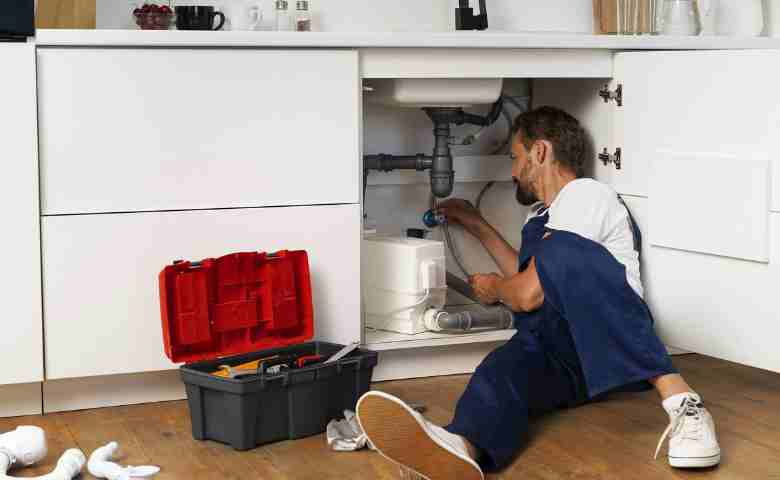Last Updated on May 20, 2024 by Admin
The plumbing profession is governed by a set of standards and regulations that vary by location. In many areas, plumbers are required to hold a valid license to practice their trade legally. This licensing is put in place to ensure that individuals working in the industry meet minimum levels of competency and are able to perform work that complies with building codes and safety standards. It serves as a protective measure for consumers, guaranteeing that the plumbers they hire are qualified to handle the complex systems involved in water and waste management in residential, commercial, and industrial settings.
ConstructionCareerHub App is LIVE — built ONLY for construction careers. Don’t apply with a weak resume.
Get ATS-ready Resume Lab + Interview Copilot + Campus Placement Prep (resume screening, skill gaps, interview readiness) — in minutes & Other advanced features.
Explore Smarter Construction Career Tools →Quick check. Big impact. Start now.
The process of becoming a licensed plumber typically involves a combination of education, extensive practical experience, and passing a comprehensive examination. Prospective plumbers may start their journey through trade schools or apprenticeships where they learn the necessary skills under the supervision of experienced professionals. Once training is completed, individuals must demonstrate their knowledge and skills through tests that assess their understanding of plumbing codes, theory, and practical applications.
In some regions, licensing for plumbers is not only mandatory but also stratified into different levels based on the plumber’s experience and the complexity of work they are authorized to perform. For example, a journeyman plumber may be required to work under the supervision of a master plumber until they gain the experience needed to attain their own master license. These regulations ensure that every level of service provided by a plumber is accounted for and that public health and safety are upheld in all instances of their work.
Table of Contents
Licensing Requirements
In the field of plumbing, professional credentials in the form of licenses are mandated to ensure both safety and competency. These requirements vary significantly depending on the jurisdiction.
Understanding Plumber Licensing
Licensing for plumbers serves as a formal indicator of a professional’s qualifications and adherence to industry standards. It assures consumers that the individual has met specific educational and practical experience thresholds. Typically, a plumber must pass an examination to demonstrate comprehensive knowledge of both local codes and broader principles of plumbing.
State and Local Regulations
Each state and, at times, local municipalities, have distinct licensing rules for plumbers. For example, Brea, CA, requires plumbers to possess a valid license to operate within the city limits. This necessitates thorough familiarization with the legal requirements of the state of California as well as an understanding of any additional municipal mandates. Prospective plumbers in Brea should consult directly with local government agencies to ensure compliance with all relevant licensing laws and regulations.
Implications of Licensing
Licensing for plumbers establishes a standardized level of expertise and adherence to regulatory codes. It carries significant benefits and legal ramifications for professionals in the plumbing industry.
Professional Credibility
Licensed plumbers gain credibility, demonstrating their professional training and expertise to customers and employers. This recognition often leads to increased trust and a more robust customer base. For instance, in job postings, employers typically list licensing as a requirement, highlighting the importance of formal credentials.
Safety and Compliance
Licensing ensures that plumbers are knowledgeable in current safety protocols and local building codes, reducing the risk of accidents and infractions. Compliance with these standards is fundamental for the well-being of both the technician and the client. For example, strict adherence to codes can prevent issues like water contamination or pipe malfunction.
Legal Consequences for Unlicensed Work
Yes, a license is required for plumbers in Brea, CA. Unlicensed plumbing work can result in legal penalties, including fines and litigation, if it contravenes regulations or causes damage. Some jurisdictions also impose restrictions on the ability to secure permits for plumbing jobs if the worker does not hold the appropriate license. For example, in many regions, performing plumbing without a license is deemed illegal and can lead to significant fines.
Related Posts:
- Draining Disasters No More: A Complete Guide to Hiring a Reliable and Professional Plumber
- How to Obtain a Builders Licence: A Step-by-Step Guide
- 10 Tools to Resolve the Plumbing Problems
- Importance of Routine Plumbing Inspections
- How to Get Heavy Equipment Operator License: Your Step-by-Step Guide


